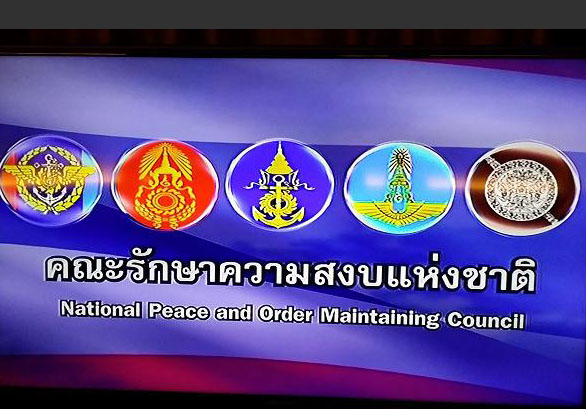Ten years ago today, the Thai military, operating under the name of the National Council for Peace and Order (NCPO), staged a coup d’état, dismantling institutional arrangements critical to the operation of the rule of law and the protection of human rights. The International Commission of Jurists (ICJ) calls for a review by the executive government and parliament of Thailand of all remaining NCPO orders, including those already enacted into law, with a view to repealing or revising those non-compliant with the rule of law and Thailand’s obligations under international human rights law.
Between the coup d’état on 22 May 2014 and the dissolution of the NCPO in July 2019, the NCPO and the Head of the NCPO ruled in part by executive fiat, issuing more than five hundred orders and similar announcements. These orders were deemed legal, constitutional, and final under the interim constitution in force at that time, although they bypassed the role of a democratically elected legislature and were clearly inconsistent with core rule of law principles.
“Ten years have passed and countless orders undermining the enjoyment of human rights and fundamental freedoms persist, negatively impacting individuals as well as entire communities in relation to a range of issues, from political expression and individual liberty to concerns about health and environmental rights, without legal remedy and judicial oversight,” said Melissa Upreti, ICJ’s Asia-Pacific Regional Director.
“We call on the Royal Thai Government and Parliament to immediately institute a transparent review process of all these orders through broad-based consultations and the meaningful participation of all stakeholders, guided by the principles of the rule of law and respect for human rights. Such a process must involve recognition of the detrimental impact of these orders, including those subsequently enacted into law, and lead to prompt access to effective judicial and other remedies, as well as the establishment of institutional safeguards against similar infringements of rights in the future.”
Orders currently in force that are non-compliant with international human rights law include those that grant the military expanded powers over civilian authorities, including broad investigatory, arrest, and detention authority without judicial oversight, in violation of the right to liberty and security of the person, among other rights. There are also orders that adversely affect entire communities and the environment by altering land or environmental protection frameworks, bypassing the usual protections that exist in domestic law, thereby violating a wide range of social, economic, and cultural rights, as well as the right to a safe, clean, healthy, and sustainable environment.
To access more information and the background note covering concerning orders, see the full statement in English and in Thai.
Contact
Melissa Upreti, ICJ Regional Director for Asia and the Pacific, e: melissa.upreti@icj.org
Sanhawan Srisod, ICJ Associate International Legal Adviser, e: sanhawan.srisod@icj.org




